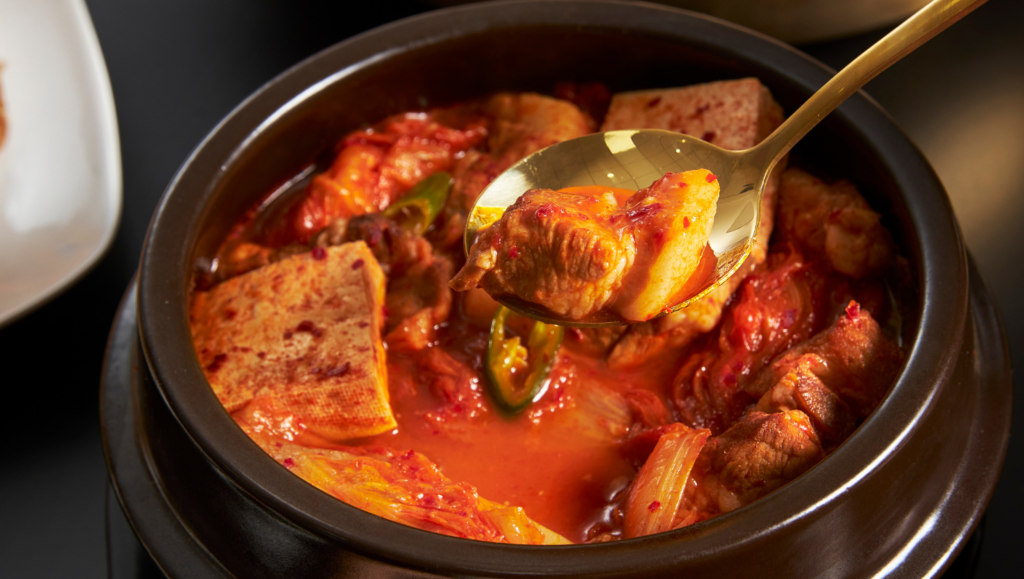
Sundubu Jjigae
Soft tofu, sharp heat, and no apologies.

Sundubu Jjigae
Sundubu Jjigae is a Korean soft tofu stew that balances richness and heat in one bubbling bowl. Traditionally made with anchovy stock and clams, this version is simpler and adaptable—spicy, savory, and full of comfort. The silken tofu soaks up the bold broth while kimchi, gochugaru, and sesame oil deliver layers of deep flavor. Add meat, mushrooms, or nothing at all. Top with an egg if you like. It’s a forgiving stew that hits hard and heals gently.
Ingredients
- 1 package extra soft/silken tofu
- 1/2 cup thinly sliced kimchi
- 3 ounces pork or beef – can use shiitake mushrooms instead
- 1 to 3 teaspoons red chili pepper flakes (gochugaru)
- 1 teaspoon minced garlic
- 1 teaspoon minced ginger
- 2 tablespoon sesame oil
- 2 cups water or broth of choice
- 4 tablespoons juice from kimchi
- salt to taste or use vegetarian fish sauce
- 1 tablespoon tamari sauce
- 1/3 cup scallions, finely chopped
- 1 egg – optional
How The Alchemy Happens
Prep your ingredients:
Slice the kimchi and your protein (meat or mushrooms) into thin strips. Finely mince the garlic and ginger, and chop the scallions.
Build the base:
In a small pot over medium heat, combine the kimchi, meat (or mushrooms), gochugaru, garlic, ginger, and sesame oil. Stir-fry for 3 to 4 minutes, until the meat is nearly cooked and the mixture is fragrant.
Create the broth:
Add the water or broth and the kimchi juice. Bring it all to a boil and let it bubble for another 3 to 4 minutes.
Add the tofu:
Gently spoon in the silken tofu in large chunks—don’t over-stir. Let it simmer in the broth for 4 to 5 minutes to absorb flavor.
Season and finish:
Add tamari sauce, salt (or vegetarian fish sauce), and black pepper to taste. Stir gently. Add the chopped scallions just before turning off the heat.
Optional magic:
Crack an egg into the bubbling stew right before serving if desired. The heat will gently poach it, adding richness to the broth.
Sometimes the softest ingredient lives in the fiercest broth—and survives.
